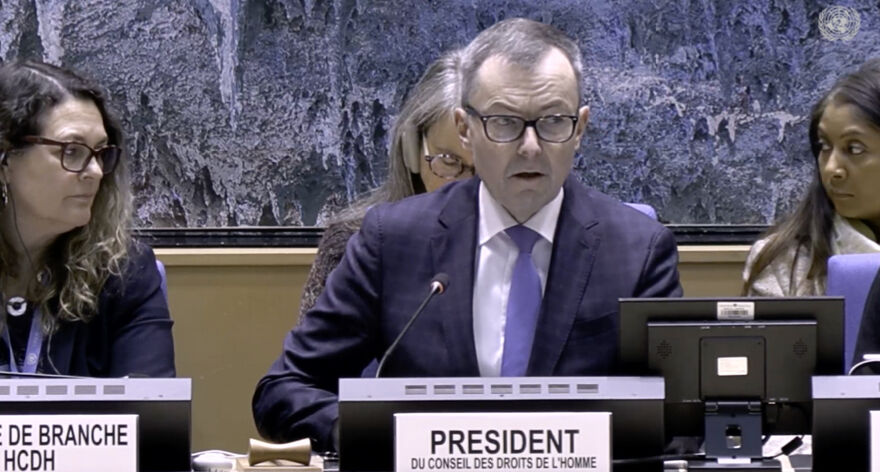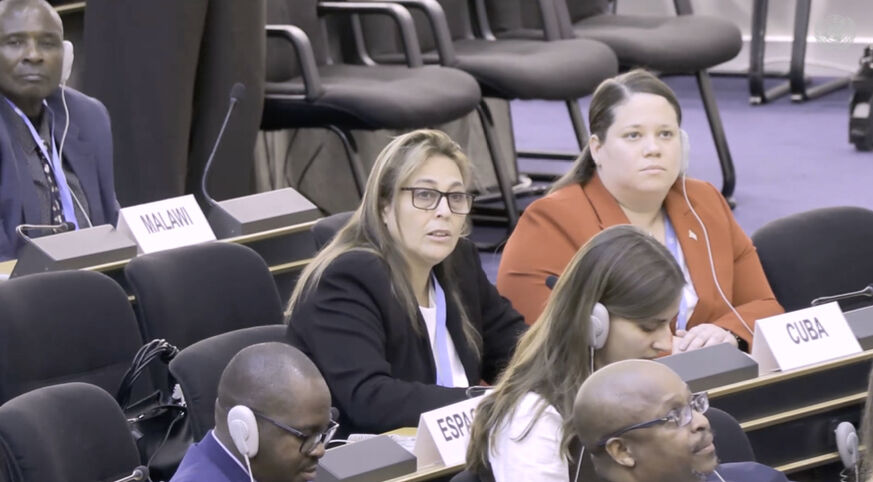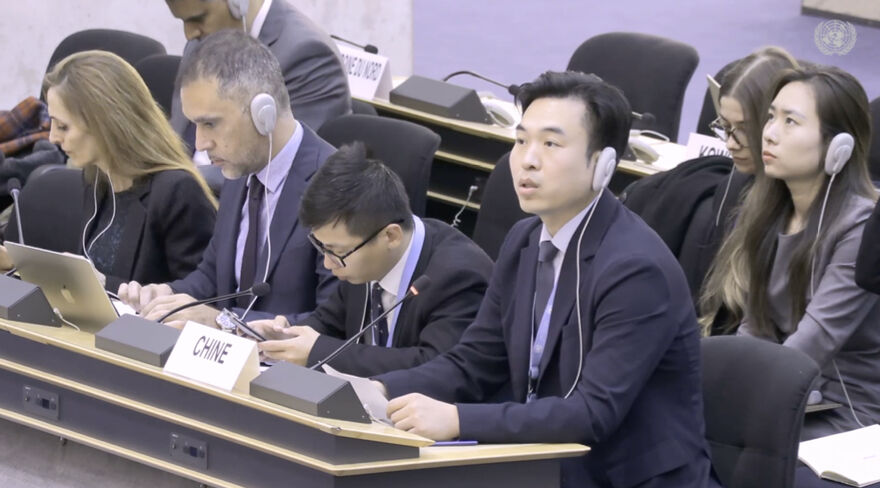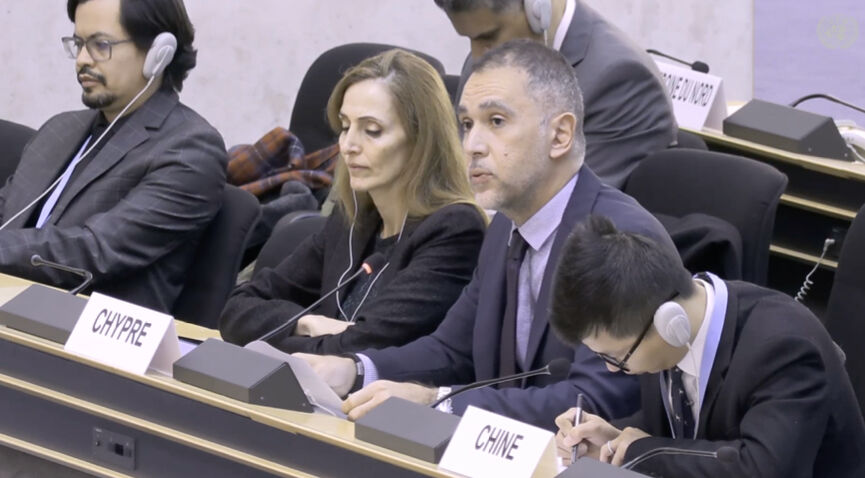
Normative Erosion: Why US Non-Cooperation Threatens the Integrity of the International Human Rights Architecture
By Theresa Mose and Mihretab Mekonnen Beyene/ GICJ
Introduction
This article scrutinizes the detrimental impact of the United States’ unilateral refusal to engage with the 50th Universal Periodic Review (UPR) session. Drawing on established international human rights jurisprudence and the procedural mandates of the United Nations system, the article delineates the core mandatory requirements of the mechanism, assesses the resulting threat of systemic erosion to multilateral accountability, and forwards principled recommendations designed to restore the essential procedural commitment of all UN Member States.

Procedural Breach and Substantive Derogation
The international human rights regime is presently confronted with an unprecedented challenge to its foundational tenets following the United States of America’s unilateral decision to abstain from its scheduled evaluation at the 50th UPR Working Group session. The official notification of non-participation, delivered on 28 August 2025, constitutes a substantive derogation from the State’s commitment to multilateral accountability. The subsequent absence of the National Report and a designated US delegation led to the procedural closure of the review meeting on 7 November 2025, thereby requiring the Human Rights Council (HRC) to immediately address this breach of the UPR’s core principle of universality of coverage and equal treatment.
The Mandatory Requirement under the UPR Mandate
The UPR, established by General Assembly resolution 60/251 and detailed in HRC resolution 5/1, represents a fundamental pillar of the Council's architecture. It imposes a mandatory requirement upon Member States to submit their human rights record to a cyclical peer-review. This mechanism is essential for ensuring the objective, non-selective application of international human rights standards, which include the UN Charter, the Universal Declaration of Human Rights, and ratified human rights instruments. The US decision to engage in selective adherence fundamentally undermines the collective legal and moral authority of the peer-review process, jeopardizing its capacity to serve as a normative benchmark for the domestication of international human rights law. This essential procedural duty is the cornerstone of the system's credibility.
HRC Meeting: Member State Submissions
The HRC meeting, convened to address the US non-cooperation, highlighted a global consensus that universal participation is essential to maintain the integrity of the UPR. The submissions from key Member States were as follows:

The delegation of Cuba issued a strong denunciation of the US action, framing the unilateral withdrawal as a direct affront to the spirit of multilateralism. Cuba asserted the necessity of upholding the systemic integrity of UN accountability mechanisms against political opportunism.

The delegation of China expressed regret concerning the lack of respect shown for the UPR mandate and advocated for a robust remedial resolution. China called for the US to immediately fulfill its procedural obligations and submit the necessary documentation to the Secretariat.

The delegation of Spain on behalf of the European Union conveyed deep institutional concern regarding the decision, reaffirming the UPR’s non-political character and urging the US to demonstrate the requisite political will for constructive re-engagement.
Remedial Action: This discourse culminated in the unanimous adoption of draft decision A/HRC/OM/19/L.1, which expressed regret and mandated the rescheduling of the US review to the 53rd session, while proactively leaving open the possibility for an earlier date, contingent upon the US demonstrating compliance with its international human rights duties.
The Peril of Normative Erosion and Precedent
From the perspective of independent human rights jurisprudence, the US non-cooperation poses a critical threat of normative erosion across the international system. A withdrawal of this magnitude by a globally influential state establishes a deleterious precedent that can be utilized by non-compliant regimes to justify their own systemic avoidance of international scrutiny. This action runs contrary to the fundamental duty to cooperate with UN human rights mechanisms, an expectation repeatedly affirmed in General Assembly resolutions. The core argument asserts that the US, by seeking to place its domestic human rights practices beyond the scope of peer review, is derelict in its international responsibility and vitiates its own moral authority to credibly champion human rights promotion abroad. The integrity of the UPR rests on the reciprocal commitment and transparency of all Member States, making the US action an untenable position for a leader of the post-1945 human rights consensus.
GICJ Position and Recommendations
Geneva International Centre for Justice (GICJ) fully supports the remedial action taken via draft decision A/HRC/OM/19/L.1. As an independent NGO dedicated to upholding international human rights law, GICJ submits that the UPR is a vital instrument for translating international standards into tangible national outcomes and reiterates the principle of non-immunity from scrutiny for all Member States.
GICJ asserts that the US administration must immediately transcend domestic political considerations and fulfill its transnational legal responsibility. We issue an urgent, principled call for the United States to reaffirm its binding obligations under the UN Charter and relevant human rights conventions. Specifically, we demand that the US fully commit to the rescheduled UPR review by submitting the requisite National Report without further delay, thereby correcting this procedural and normative breach.
The decision to engage with the UPR is a choice between global leadership through accountability and setting a dangerous precedent for systemic non-compliance. GICJ maintains that the advancement of human rights globally is intrinsically linked to the UPR's efficacy and the preservation of a rules-based order.
The integrity of the universal human rights system mandates that the US correct this procedural and normative breach forthwith. Therefore, GICJ urges the US to take definitive steps to restore confidence in its substantive commitment to the international human rights framework, making the choice to comply a necessary affirmation of the jus cogens principles underpinning the multilateral order, thereby preventing the further erosion of global accountability.









